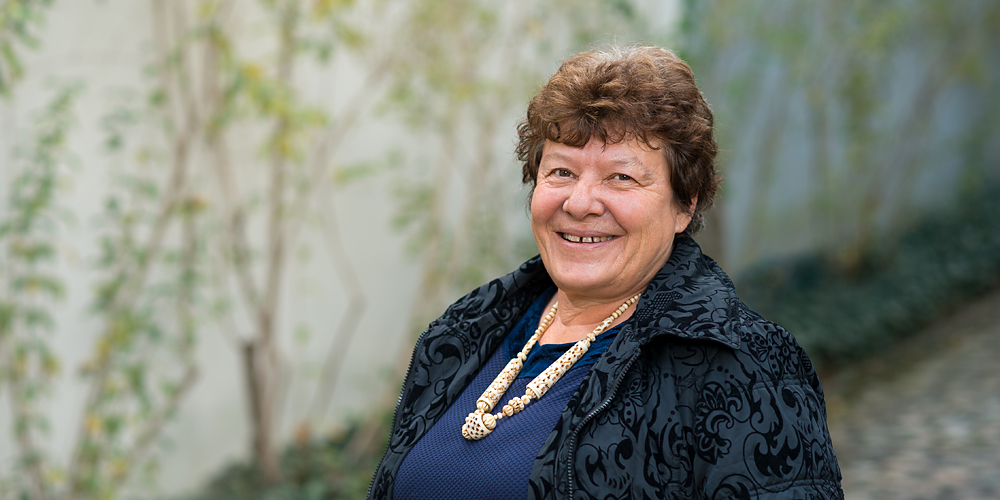“Joint Research Projects Improve Your Research Question”
The South African Ann Grobler, Director of the Preclinical Drug Development Platform South Africa and professor for Pharmacology at North-West University, is already leading her second joint research program with scientists from Switzerland and South Africa. In this interview, she talks about her research, why she is also a business woman and what the collaboration with Switzerland has taught her.
10 November 2015
Your research project is looking at nutritional enhancement, what are you working on exactly?
Anne Grobler: We are currently working towards adapting our drug delivery system to nutritional supplements. A drug delivery system delivers pharmaceutical substances exactly where they need to be effective. ETH Zurich was successful in producing novel nano-crystals from calcium and iron. In a joint research program, we now want to find out if we can formulate these crystals into dosage form for humans. If we are successful at enhancing the so-called bioavailability of calcium we could, for example, treat osteoporosis by this instead of hormonally.
In the case of iron, this would be just as valuable, since around 25 percent of world population is anemic. A bioavailable nutritional supplement would address this issue without the side effects of the current treatments. Both applications could potentially make a big difference in the lives of many people.
In what ways do you collaborate with Switzerland?
Student and staff exchanges are an important part of our collaboration. Students from Switzerland are for example doing their field work and animal studies at North-West University. Reciprocally, we have also sent students and PhD students to Switzerland for their studies. Of course, we also co-publish papers. My experience shows that the exchange of views, manner of working and shared infrastructure really improves one's research questions and one's ability to answer them.
This joint research project is one of several that are organized through the Swiss South African Joint Research Program (SSAJRP). The state-funded program supports and promotes joint projects between researchers from Switzerland and South Africa. The University of Basel is the Leading House of SSAJRP.
The SSAJRP also aims to facilitate the transition of academic innovations to the market. What experiences have you made with this transition?
In 2011 I took part in the Biotech Business Development Program in Switzerland. This experience completely changed how I think about my responsibility as a scientist and how I look at my scientific results. Too often scientific results remain just scientific results and are never made available as products on the market where they could actually benefit people. The program really opened my eyes to how important it is to make that transition.
Back then, one of the mentors asked me directly: “Do you want to do business or don't you? First, you have to make that decision.” So I made the decision and that business has since flourished and we are today exporting our drug delivery system customized for plants to China, Namibia, Zambia and Turkey, amongst others. When it comes to commercializing biotechnology, South Africa can learn a lot from Switzerland – the Swiss are just incredibly good at it.
What are your plans for the future regarding your collaboration with Switzerland?
Naturally, I hope that all our students complete their degrees and that we will have an answer to the question of whether our research project can ultimately lead to a product or not. Of course, we are also looking forward to the third call from the SSAJRP and the collaborations that may come from that. For the future, it would be great if we could also establish a student platform where the students themselves can collaborate across borders.
The SSAJRP
Basel has a long standing relationship with Africa: from the historic Basel Mission to the University’s renowned Center of African Studies. A further milestone in this history is the university’s position as Leading House in the Swiss South African Joint Research Program (SSAJRP). The state funded program has fostered research partnerships between Swiss and South African scientists through joint research projects since 2008 and is currently in its third funding period (2013-2016).
The SSAJRP is one of several bilateral research cooperation programs organized by the State Secretariat for Education, Research and Innovation (SERI). Such programs are launched with the aim of strengthening scientific relations between Switzerland and certain partner countries in important research areas and to promote the international networking activities of Swiss universities.


